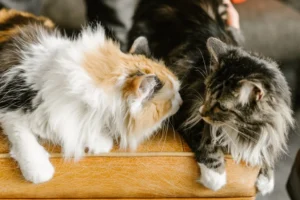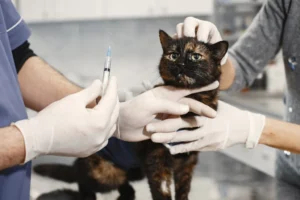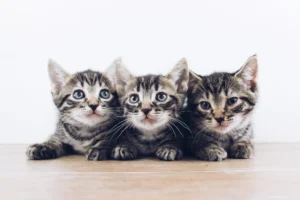Male cats leaving after mating is a common behavior that many cat owners notice. It often raises questions about why they choose to depart. Understanding the reasons behind this behavior can provide valuable insights into feline reproductive strategies.
Male cats leave after mating as a natural instinct to prevent competition and ensure their genes are passed on effectively. This behavior is driven by biological imperatives and has evolved over time to maximize mating success. In the following sections, we will explore the various factors that contribute to this behavior and shed light on the motives behind it.
Dominance Hierarchy
Male cats are inherently territorial creatures, and their behavior is heavily influenced by the dominance hierarchy within their social structure. Before mating, male cats engage in various behaviors to establish their dominance and assert their place in the hierarchy. This can include fighting with other males, spraying to mark their territory, and vocalizing to communicate their dominance.
After mating, male cats may leave to avoid confrontation with other males and maintain their status within the hierarchy. This departure is a strategic move to prevent potential challenges to their dominance and ensure they can continue to attract mates in the future. By discreetly withdrawing after mating, male cats can avoid unnecessary conflict and focus on maintaining their dominant position in the social structure.
Additionally, the instinctual drive to protect their territory and ensure successful mating opportunities can also contribute to male cats leaving after mating. By securing their territory and patrolling it regularly, male cats can increase their chances of attracting potential mates and passing on their genes.
In essence, the dominance hierarchy plays a crucial role in shaping the behavior of male cats before and after mating. By understanding this aspect of their nature, we can gain valuable insights into why male cats choose to leave after fulfilling their mating instincts.
Territory Marking
Male cats are known for their territorial marking behavior, which plays a significant role in attracting potential mates and asserting dominance within their environment. Before mating, male cats may engage in scent marking by rubbing against objects or spraying urine to establish their territory and communicate their presence to females in heat.
After mating, male cats may leave to renew their territorial markings and ensure that their scent remains potent in attracting mates. By revisiting key locations and reapplying their scent markers, male cats can maintain their dominance and enhance their chances of future mating success.
Moreover, the act of territory marking serves as a way for male cats to communicate their availability to potential mates. By leaving their scent in prominent locations, male cats signal to females that they are ready and willing to mate, increasing their chances of attracting a suitable partner.
In conclusion, the behavior of male cats leaving after mating can be attributed to their innate drive to mark and defend their territory. By understanding the significance of territory marking in their mating behavior, we can appreciate the intricate ways in which male cats navigate their social and reproductive lives.
Reproductive Strategy
Male cats leave after mating as part of their reproductive strategy to increase their chances of passing on their genes. By mating with multiple females and moving on, they can spread their genetic material far and wide, ensuring a higher likelihood of successful reproduction. This behavior is rooted in their evolutionary instinct to maximize their reproductive success by diversifying their offspring. Therefore, leaving after mating is a strategic move that benefits their overall reproductive fitness.
Lack of Parental Care
Unlike some species where males play a role in raising their young, male cats do not engage in parental care. This lack of involvement in raising offspring contributes to their tendency to leave after mating. Male cats prioritize finding and mating with as many females as possible to increase their chances of passing on their genes, rather than investing time and energy in caring for their offspring. Their focus is on mating and moving on to the next opportunity, reflecting their instinctual drive to spread their genetic legacy.
Extra tip: Male cats leaving after mating also helps prevent inbreeding within a population by seeking out unrelated females, promoting genetic diversity and overall health of the species.
For more information on feline behavior, you may find this link helpful.
Post-Mating Aggression
Male cats often exhibit post-mating aggression, which can lead to them leaving after mating. This behavior stems from their instinct to protect their territory and ensure the survival of their genes. The male cat may become agitated or even hostile towards the female or other cats nearby after mating. This aggression is a way for the male to establish dominance and mark his territory, ensuring that his genetic legacy remains intact. In some cases, the male cat may leave after mating to seek out other mating opportunities or to avoid any potential conflicts that may arise due to this aggression.
Scent-Covering Behavior
After mating, male cats engage in scent-covering behavior to avoid detection by potential rivals. This behavior involves the male cat rolling in dirt, grass, or other materials to mask the scent of the female cat. By covering up the scent of the female, the male reduces the likelihood of other males being attracted to the area and potentially challenging him for mating rights. This behavior also serves to protect the female from unwanted advances from other males. Additionally, scent-covering behavior may help the male cat avoid confrontation with other males who may become aggressive upon detecting the female’s scent.
Additional Insight: In some cases, male cats may leave after mating to prevent exhaustion or potential injury from repeated mating sessions. Male cats can become physically fatigued from mating multiple times in a short period, leading them to seek rest and recovery elsewhere. By leaving after mating, male cats can preserve their energy and ensure they are in optimal condition for future mating opportunities.
Remember, understanding the post-mating behavior of male cats can help pet owners create a safe and comfortable environment for their feline friends. Being aware of these instinctual behaviors can also help minimize potential conflicts and ensure the well-being of all cats involved.
Interesting Facts About Feline Reproduction
Male cats leaving after mating is a behavior seen in many feline species. This instinctual act serves a crucial purpose in the wild. After mating, the male cat’s departure prevents potential conflicts with other males vying for the female’s attention.
In the wild, male cats need to spread their genes to ensure the survival of their offspring. By leaving after mating, they can search for other potential mates and increase their chances of passing on their genetic material. This behavior is deeply ingrained in their natural instincts and has been shaped by years of evolution.
Interestingly, some male cats may engage in multiple matings with different females in a short period. This behavior, known as polygyny, allows them to maximize their chances of reproducing successfully. Polygyny is a common reproductive strategy among many feline species, ensuring genetic diversity and increasing the chances of survival for the offspring.
Overall, the behavior of male cats leaving after mating is a fascinating aspect of feline reproduction, driven by instinctual urges and the need to ensure the continuation of their genetic lineage.
Additional Insight:
Male cats have a strong sense of smell, allowing them to detect when a female is in heat. This keen olfactory sense helps them locate potential mates and engage in mating behaviors more efficiently.
Alex, a passionate animal lover, has experience in training and understanding animal behavior. As a proud pet parent to two dogs and three cats, he founded AnimalReport.net to share insights from animal experts and expand his knowledge of the animal kingdom.









